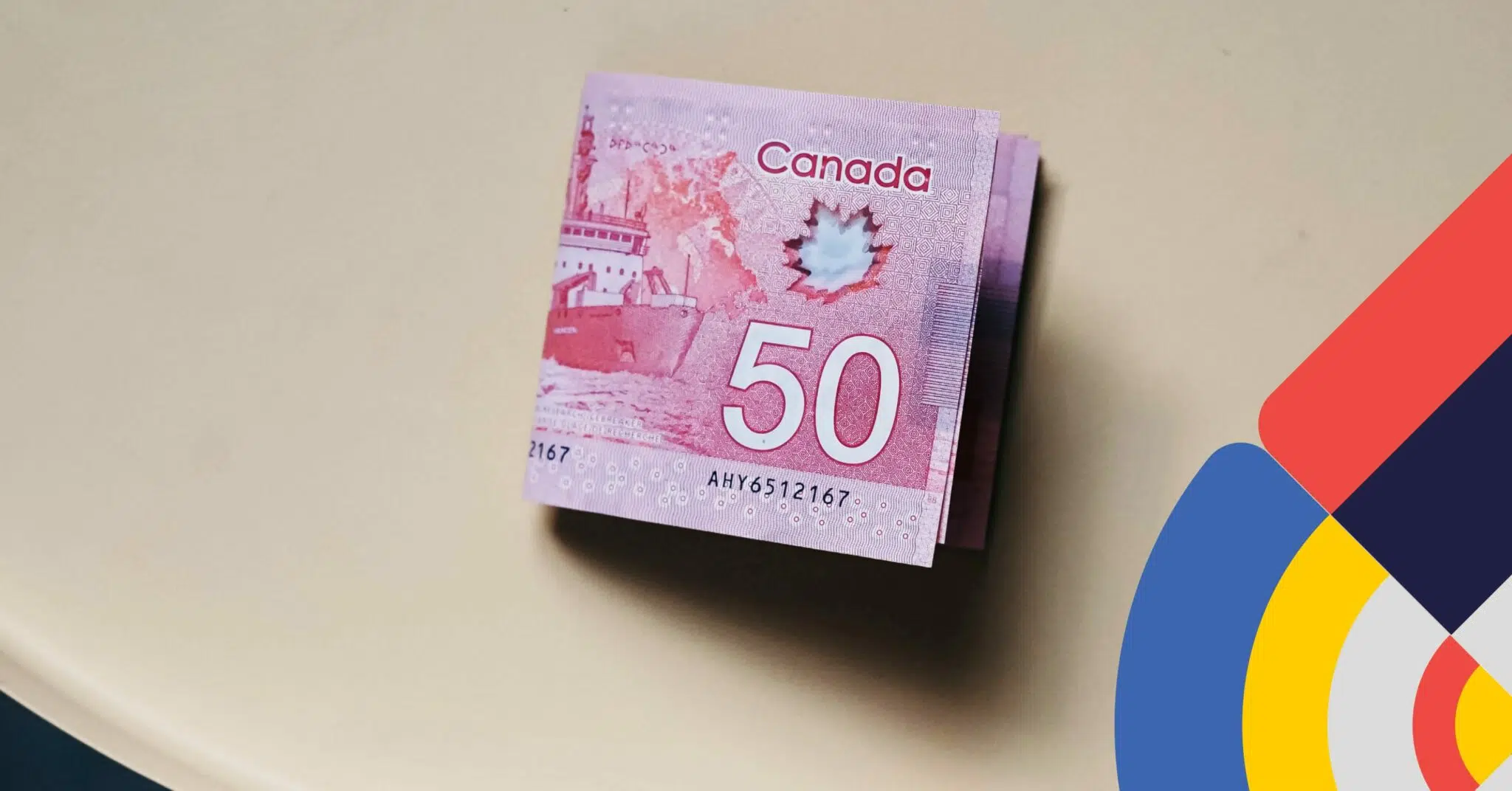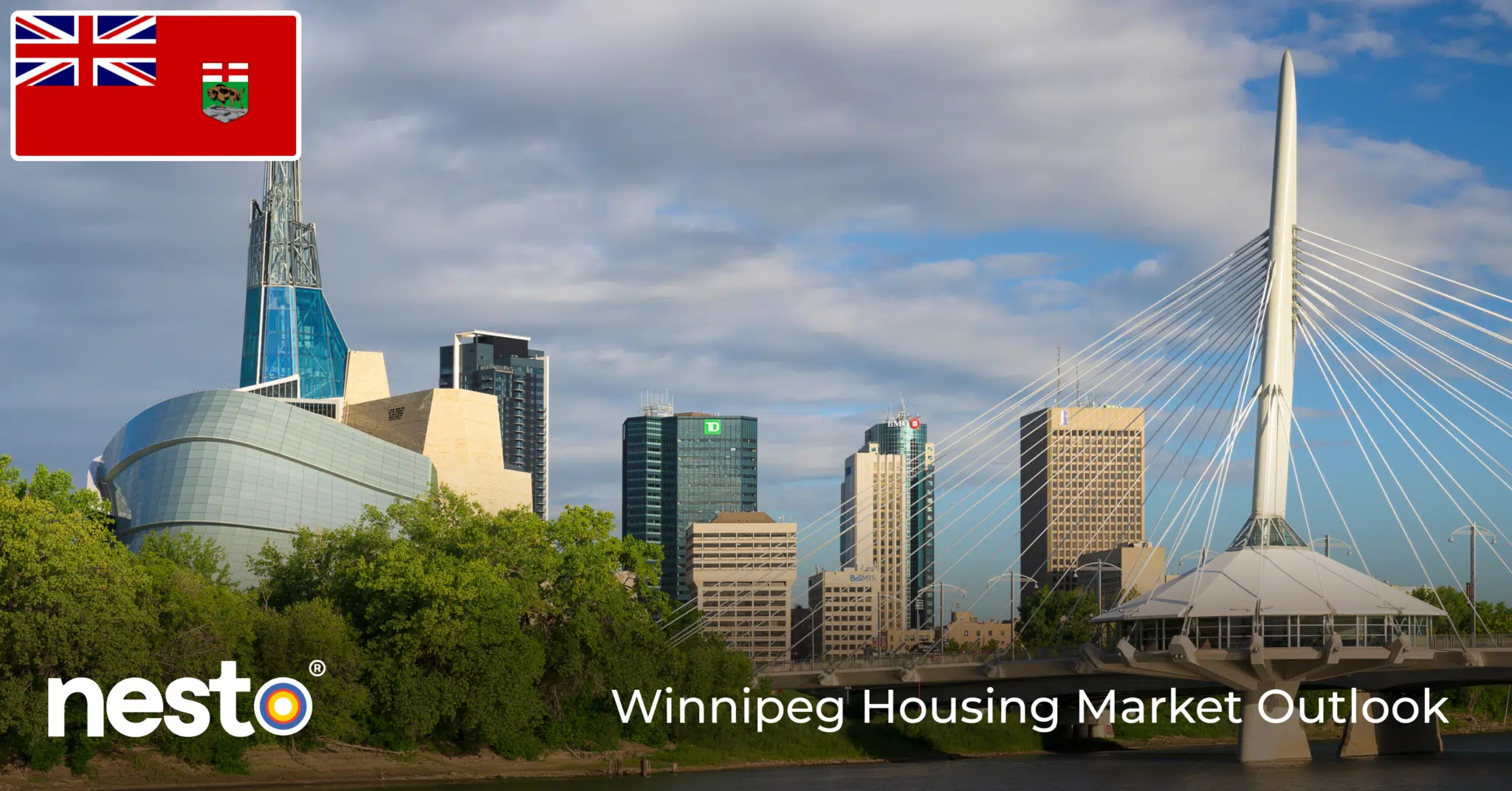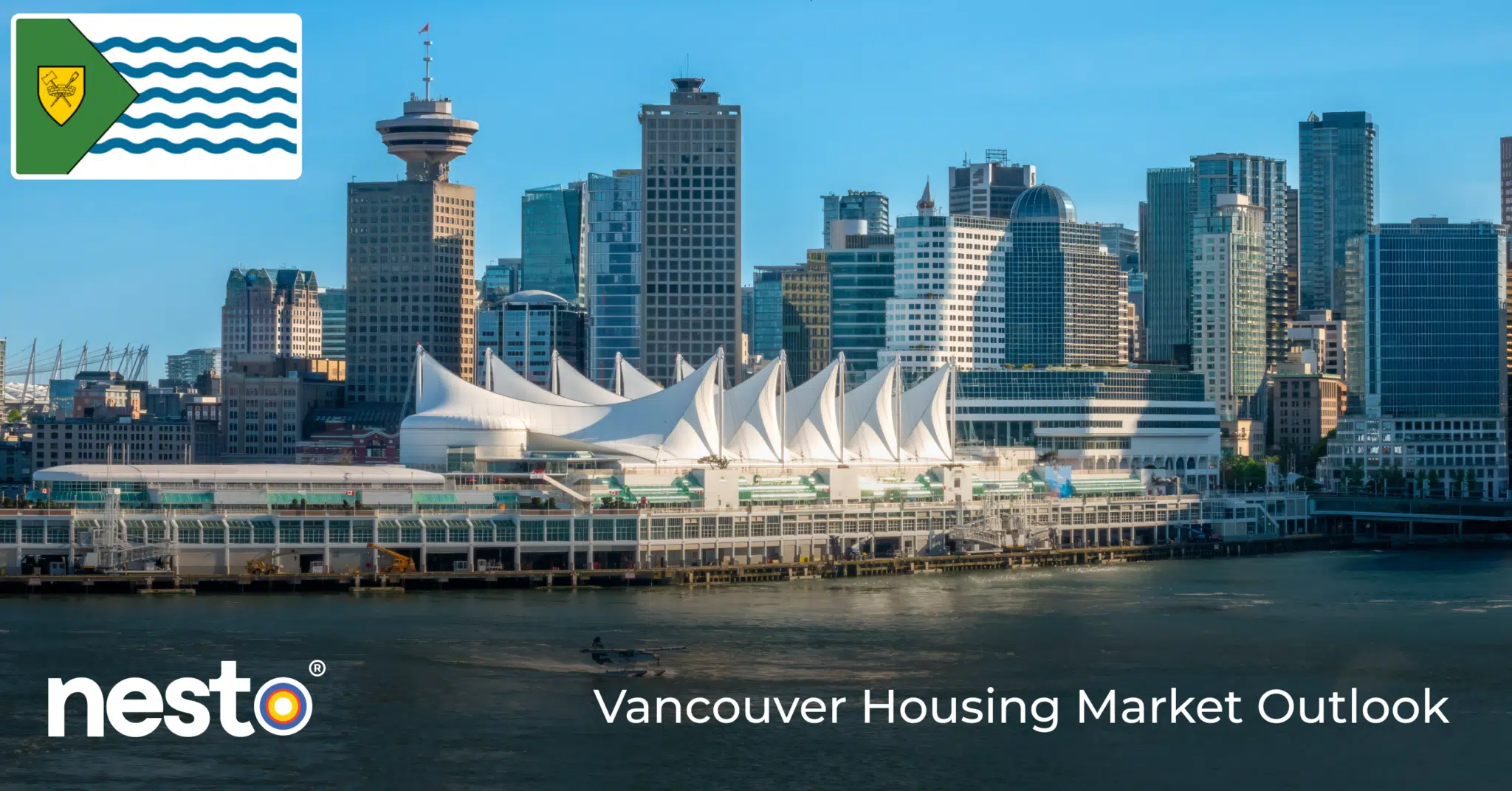Closing Costs: Types and How to Calculate

Table of contents
Buying a home is a significant financial commitment and one that doesn’t just end with the purchase price. There are other expenses to consider, like closing costs, which are the fees and charges associated with completing your mortgage deal.
Despite their importance, many potential homeowners are unaware of these costs and how to calculate them. It’s important to include these costs in your budget since, in most cases, they can’t be rolled into your mortgage payments and will need to be paid leading up to or on your closing date.
This post will look in depth at closing costs, what they are, and how much you should plan to put aside for these expenses when purchasing a home.
Key Takeaways
- Closing costs are additional expenses incurred by the buyer to close on the property and take ownership.
- Total closing costs can range between 1.5% – 4% of the purchase price.
- Closing costs may include legal fees, land transfer taxes, home inspection fees, and title insurance.
What are Closing Costs?
Closing costs encompass a variety of fees and charges tied to the finalization of a property purchase. They can include all legal and administrative fees, land transfer tax, home inspection fees, appraisals, mortgage default insurance, title insurance, and more. These costs are over and above the property’s purchase price and downpayment and will typically vary based on the location and type of property.
How to Calculate Your Closing Costs
Closing costs will vary depending on the property you plan to purchase and the location. Budgeting 1.5% – 4% of the property’s purchase price is wise to cover these costs. For example, if you plan to purchase a home for $500,000, consider setting aside $7,500 – $20,000 to cover closing costs.
However, you can get a more accurate estimate of the closing costs you may need to budget using the chart below. These are approximate amounts for each expense you may need to consider for closing costs.
| Closing Cost | Approximate Cost | Details |
|---|---|---|
| Appraisal | $300 to $500 | Depending on your downpayment and province, the lender or insurer may cover this fee. The cost will vary depending on the property’s location. |
| Land Transfer Tax | % of purchase price | Cost is calculated as a percentage of the purchase price and depends on the province where the property is located. In some cases, the municipality may also have a separate land transfer tax. Use our land transfer tax calculator for an estimate. |
| Legal Fees | $1,000 to $3,000 | Costs can vary depending on the amount of due diligence required to complete all the legal requirements to transfer the property’s title into your name. |
| Title Insurance | $150 – $5,000 | One-time cost that protects against title fraud and conveyance issues. Lenders or provinces may require it to be purchased to protect all stakeholders involved in your transaction. The cost will vary based on the property’s value, province, mortgage, lender, and transaction type. |
| Mortgage Default Insurance | 2.8% to 4% of the mortgage | Mandatory if putting down less than 20% as a downpayment and protects your lender in case of default. The premium you pay to the default insurer (CMHC / Sagen / Canada Guaranty) is a percentage of your mortgage amount based on your loan-to-value (LTV) ratio. The premium can be paid upfront in cash at closing or added to your mortgage. |
| PST | ON – 8% QC – 9.975% SK – 6% |
Provincial sales tax is applicable in some provinces on mortgage default insurance. PST must be paid in cash to your solicitor and cannot be added to your mortgage. |
| GST/HST | 6% to 13% | The federal sales tax may apply if you buy or build a new home or condo. The rate will depend on the province where the property is located and is based on the purchase price. |
| Property Taxes | % of home value | Any unpaid portion of property taxes from the date of purchase could be a charge or a credit on your statement of adjustment, as they are sometimes prorated and paid to the municipality by the seller. Your solicitor will request the final bill from the seller or municipality to adjust for any unpaid portion when you take ownership. |
| Home Inspection | $500 to $1,500 | The cost of this service will depend on the size and age of the home, location and availability of the inspectors who service the area, as well as the thoroughness of the report. It’s not a requirement but could reveal structural or other costly issues with the property and help you negotiate a lower price or cancel your purchase if you’re still within your waiting period. |
| Property Survey | $1,500 to $6,000 | The average cost of a property survey ranges from $1,500 to $6,000 based on the property size and the type of survey needed. In some provinces, a survey is not required, but it is a wise investment for a buyer to have an updated survey done to confirm the boundaries of the land being purchased are correctly stated. In some provinces, the property survey will be provided by the seller. |
| Government Registration Fees (Title Registration Fees) | $200 | The specific fees can vary by province and are often adjusted annually. Your real estate lawyer or notary will complete this request on your behalf and likely include this on their invoice. |
| Status/Estoppel/Information Certificate | $100 | The fee for a status certificate is typically around $100. The status certificate is also known as an estoppel certificate, information certificate, or simply a certificate in some provinces. |
Get approval on your low rate today
No big bank bias, just commission-free experts ready to help you.
Most Common Types of Closing Costs
Understanding the most common closing costs can help you more accurately prepare your budget. Below, we’ve outlined two of the most common closing costs you will encounter when purchasing a home.
Land Transfer Tax
Land transfer tax is a one-time payment to the provincial or regional government to cover the transfer of the property’s title from the seller to the buyer. The amount will vary based on the home’s purchase price and location. Some areas also have additional municipal land transfer taxes that must be paid on top of the provincial amount.
Land transfer tax cannot be added to the mortgage and must be arranged through your solicitor or notary. Depending on the province, first-time homebuyers may be eligible for a rebate or exemption.
Land transfer can also be known as property transfer, real property transfer, deed transfer or land titles, whereas tax may be referred to as duties, fees or tariffs. In some provinces, it is calculated on both the purchase price and mortgage amount.
Lawyer and Legal Fees
A home purchase requires a real estate lawyer or notary to handle the property purchase. They will review all legal documents, including the agreement of purchase and sale and ensure there are no liens on the property’s title. They will handle all necessary legal requirements to transfer the property’s title into the buyer’s name. Legal fees will vary and be charged based on the complexity of the transaction and the amount of due diligence required.
Other Closing Costs in Canada
In addition to the above, more commonly known closing costs, several other costs may need to be accounted for in your budget.
Provincial Sales Tax On CMHC Premium
If you make a downpayment of less than 20%, you must purchase mortgage default insurance from CMHC, Sagen or Canada Guaranty, commonly known as CMHC insurance. You can add the insurance premium to your mortgage balance and pay it off as you make mortgage payments. However, the provincial sales tax on the premium must be paid upfront to your solicitor and cannot be added to your mortgage. Only Ontario, Quebec and Saskatchewan require the PST or QST to be paid on mortgage default insurance.
Home Inspection Fee
Before you finalize your purchase, having a professional home inspection, while not a requirement, is a wise investment. A home inspector will examine the physical structure and systems within the home and identify any hidden problems or concerns that could lead to future issues or costly repairs. The cost will vary depending on the size and age of the home, the extent of the inspection, the location of the property and the availability of inspectors in the area. If you discover structural or costly issues with the home, you can renegotiate your purchase price or have a way to back out of the sale.
Property Survey
Your mortgage provider and real estate lawyer may require a current property survey to complete the purchase. A property survey will provide accurate information on the size and shape of the plot of land that makes up the property. In most cases, the property survey will be provided by the seller. In some provinces, a survey is optional, but knowing you’re actually getting what you’re paying for would be worth the investment. It is wise to have an updated survey done to confirm land boundaries if the seller does not provide one. Property Surveys will not be required when you purchase a unit in a multi-unit residence such as a condominium or apartment building.
Property Appraisal Fee
An appraisal is an unbiased estimate of the home value you are looking to purchase. Appraisals use comparables and the cost to rebuild the home to confirm the value. Lenders typically require an appraisal from a professional appraiser to determine if the selling price is reasonable compared to the market. The value the appraiser returns will be used when determining how much the lender will lend you for the mortgage. Depending on your downpayment, the lender or insurer may cover this fee.
Title Insurance
Title insurance is a one-time premium that protects against title fraud and conveyance issues in the event of an ownership dispute. Title insurance can be purchased through your real estate lawyer or notary. The cost varies based on the property value, province, mortgage, lender, insurance provider, and transaction type. Some lenders or provinces may require it to be purchased to protect the stakeholders involved in the mortgage transaction.
Property Taxes
Property taxes are a recurring cost that comes with homeownership. Property taxes (which may or may not include school/education taxes) are calculated as a percentage of the home value, with tax rates varying based on the municipality where the property is located. While not technically a closing cost, you may be required to pay a prorated amount to reimburse the seller if they have already paid to cover the property taxes that would be owed after your closing date.
CMHC Mortgage Insurance
You must obtain mortgage default insurance if your downpayment is less than 20%. This insurance protects the lender if you default on your mortgage and can be obtained through CMHC, Canada Guaranty, or Sagen. The insurance premium can either be paid upfront upon closing or added to your mortgage balance to be paid down as you make mortgage payments. The premium you pay is a percentage of your mortgage amount based on your loan-to-value (LTV) ratio.
Government Registration Fees/ Title Registration Fees
Government registration fees are paid by your real estate lawyer or notary when they file official documents on your behalf. The fees can include costs for title searches, registering or depositing an instrument, plan or description, correcting errors, defects and omissions in a registered document or deposited plan, and any other services related to land title registration.
Fees vary based on the province, documents and property type and are typically adjusted annually. Your real estate lawyer or notary will be responsible for paying these fees on your behalf. They will either include these costs as part of their overall fee or as an additional cost itemized as a separate bill.
Status/Estoppel Certificate Fee
If you purchase a condominium or apartment, you will need a status certificate, estoppel certificate, information certificate, or simply a certificate, depending on the province. This legal document outlines all the corporation’s financial and legal statuses. It provides an overview of all information related to the unit, building, bylaws, rules, regulations, and legal matters.
You should consult with an experienced real estate legal professional to help you understand the information on the certificate and determine if any issues need to be addressed before completing your real estate transaction. The cost to obtain the certificate is around $100.
Ways To Avoid Or Reduce Closing Costs
You may only be required to pay some of the closing costs listed above. Your real estate lawyer will give you a complete rundown of all costs as soon as your mortgage is approved.
If you are a first-time homebuyer, you are eligible for a rebate on land transfer taxes. You may also qualify for additional rebates that can help you offset closing costs.
If you put down more than 20% as a downpayment, you can avoid paying mortgage default insurance premiums and PST.
Do Closing Costs Vary By Province?
Most closing costs will vary by province, municipality or location as they are area-specific and may involve provincial taxes or provincial and municipal tax rates. Some closing costs like land transfer taxes, title insurance, PST/QST, GST/HST, property taxes, home inspection, property survey, government registration fees, and status/estoppel certificates will vary based on the property’s location.
Frequently Asked Questions
Who pays for home closing costs?
The buyer is responsible for paying closing costs when purchasing a home. Unlike a gifted downpayment from a next of kin, closing costs cannot be gifted and must be from your own sources.
What if I can’t afford the closing costs when buying a home?
Closing costs are required to close, so if you cannot afford the closing costs, the deal won’t go through. It’s important to budget ahead and set aside some additional money, usually between 1.5% – 4% of the purchase price, to account for these costs. Accounting for and putting aside this money will ensure you are prepared for a timely closing. There are ways to reduce closing costs, especially if you’re a first-time buyer, through first-time homebuyer rebates.
Can I use my credit card to cover closing costs?
While using your credit card to cover closing costs is technically possible, it is not recommended. You need to be able to show proof that you have the money to cover the downpayment, as well as closing costs, in your account 90 days before closing. This means you would need to take the funds from your credit card as a cash advance, and you will pay a much higher interest rate. Additionally, the balance on your credit card could affect the qualifying mortgage amount if it impedes your total debt servicing (TDS) ratio.
How much does a lawyer charge to close on a home?
The amount a lawyer charges to close will vary depending on the due diligence needed to complete all legal requirements to complete the purchase and move the property’s title into your name. Expect to budget between $1,000 and $3,000 to cover your real estate lawyer or notary’s legal fees.
Final Thoughts
Buying a property involves many closing costs that must be factored into your home purchase. With so many closing fees to consider and varying costs, it can be challenging to know exactly how much to budget to ensure you can cover these closing expenses. It’s recommended that you set aside 1.5% to 4% of the home’s purchase price so you know you have enough to finalize your home purchase.
It’s recommended to seek guidance from a mortgage professional who can provide valuable insights and assistance navigating you through these closing costs to ensure a smooth mortgage process. Our licensed mortgage professionals can help you understand the breakdown of expenses and ensure you are well-prepared financially for your home purchase.
Reach out to nesto’s mortgage experts today!
Ready to get started?
In just a few clicks, you can see our current rates. Then apply for your mortgage online in minutes!















